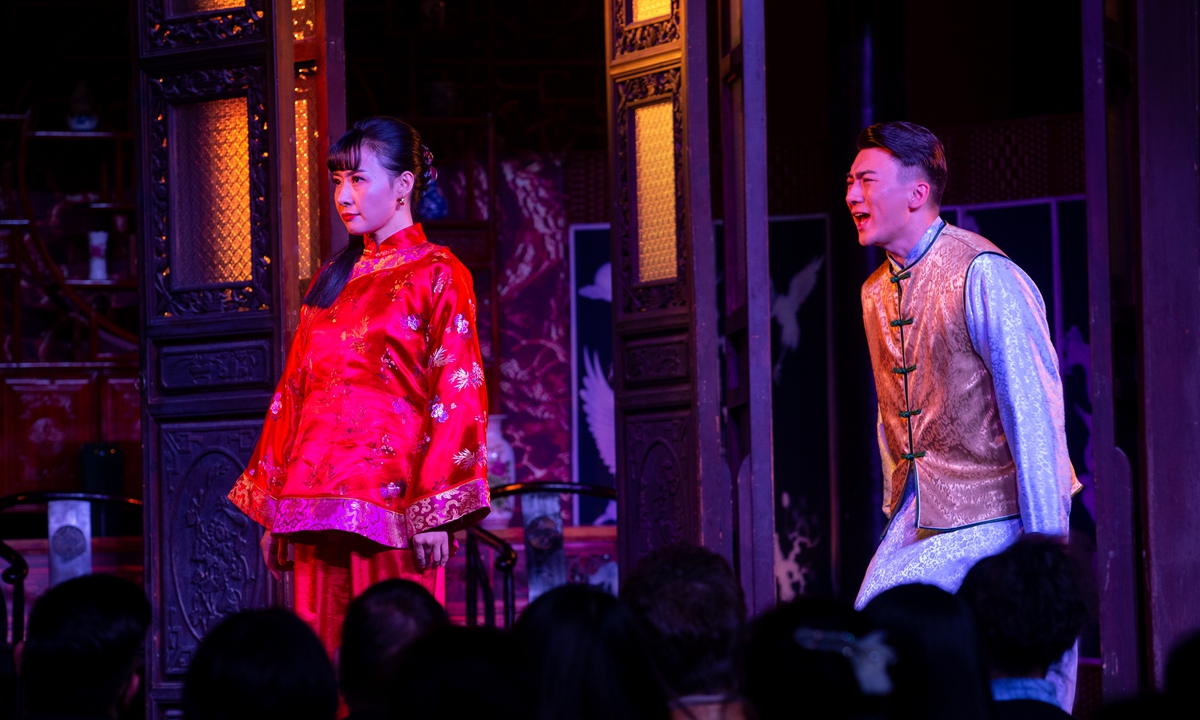
Photo: IC
A major sought-after production following its 2022 debut, the Shanghainese version of the classic Chinese drama
Thunderstorm is set to hit the stage in Shanghai on Friday.
The show is choreographed by the Baoshan Shanghai Opera Troupe, which worked hard to bring Shanghainese, or the Hu dialect, into
Thunderstorm, an 89-year-old "landmark" in the field of realist stage plays in China that remains a favorite of people who grew up in the 1950s and 1960s, Chen Ling, a Chinese theater insider, told the Global Times.
"I've come across it [
Thunderstorm] since I was a high school student. But, I want to see it in the theater this time since the local dialect provides an immersive experience, like I am right there when the story is happening," Ba Sixi, a theater fan, told the Global Times.
Using the Shanghai dialect as a "hook," the show's 2022 debut was surprisingly popular among young fans. Hua Wen, the Shanghai troupe's director, said that the more than 200 tickets for the show were sold out "rapidly" on their ticketing channel particularly designed for university students.
The troupe has released short videos revolving around the show on social media platforms like Bilibili and Douyin, the Chinese regional version of TikTok, to ignite young people's passion for the Chinese classic, the director said.
"The Shanghai dialect is a window to promote Shanghai culture," Hua noted. The show will be staged at Shanghai's Majestic Theatre.
Such an experiment that combinesing a local dialect with a notable cultural IP has also been fulfilled in other forms such as a Sichuan dialect version of
Teahouse by Lao She and also
White Deer Plain, a book adapted into a play in the local Shaanxi dialect.
Chu Xin, a cultural sociologist, told the Global Times these creative combinations are rooted in "the diverse Chinese dialect culture" and that their "cultural authenticity" can actually engage a broader audience beyond just locals.
"A particular dialect is a reflection of a region's cultural and social landscapes, like people's lifestyles and personalities. It carries a sense of authenticity that can touch audiences from different backgrounds," Chu noted.




